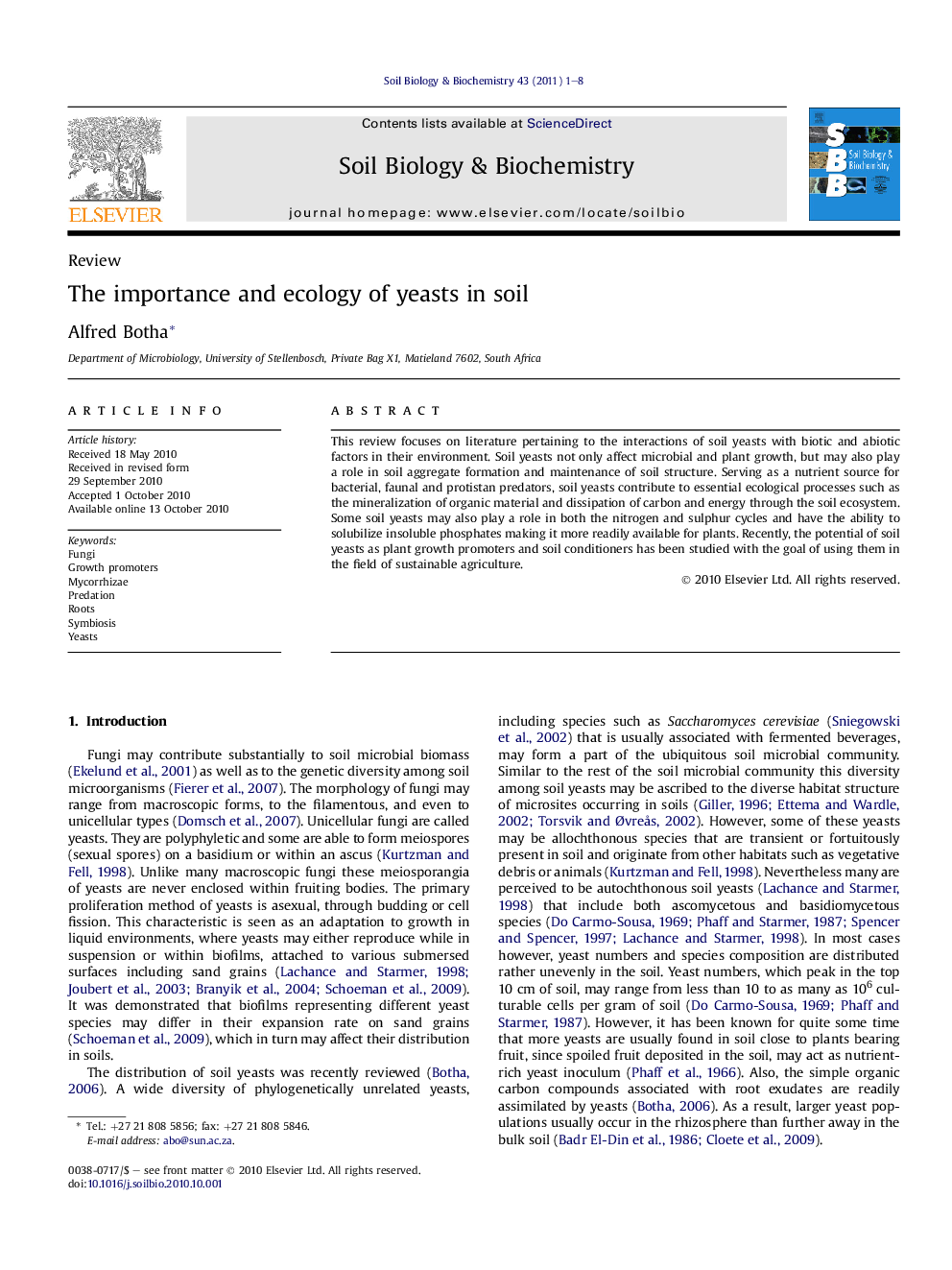| Article ID | Journal | Published Year | Pages | File Type |
|---|---|---|---|---|
| 2025700 | Soil Biology and Biochemistry | 2011 | 8 Pages |
This review focuses on literature pertaining to the interactions of soil yeasts with biotic and abiotic factors in their environment. Soil yeasts not only affect microbial and plant growth, but may also play a role in soil aggregate formation and maintenance of soil structure. Serving as a nutrient source for bacterial, faunal and protistan predators, soil yeasts contribute to essential ecological processes such as the mineralization of organic material and dissipation of carbon and energy through the soil ecosystem. Some soil yeasts may also play a role in both the nitrogen and sulphur cycles and have the ability to solubilize insoluble phosphates making it more readily available for plants. Recently, the potential of soil yeasts as plant growth promoters and soil conditioners has been studied with the goal of using them in the field of sustainable agriculture.
Research highlights► Soil yeasts affect microbial and plant growth. ► Yeasts play a role in maintenance of soil structure and aggregate formation. ► Yeasts participate in soil nutrient cycles and mineralization processes. ► Yeasts serve as a nutrient source for a diversity of soil predators. ► Soil yeasts have potential as plant growth promoters and soil conditioners.
